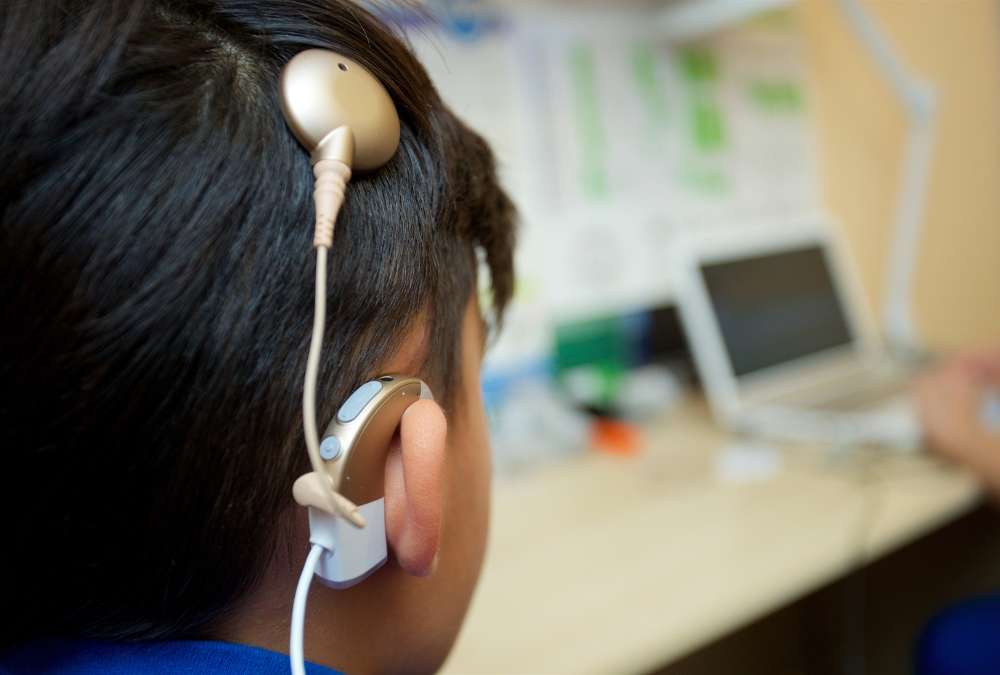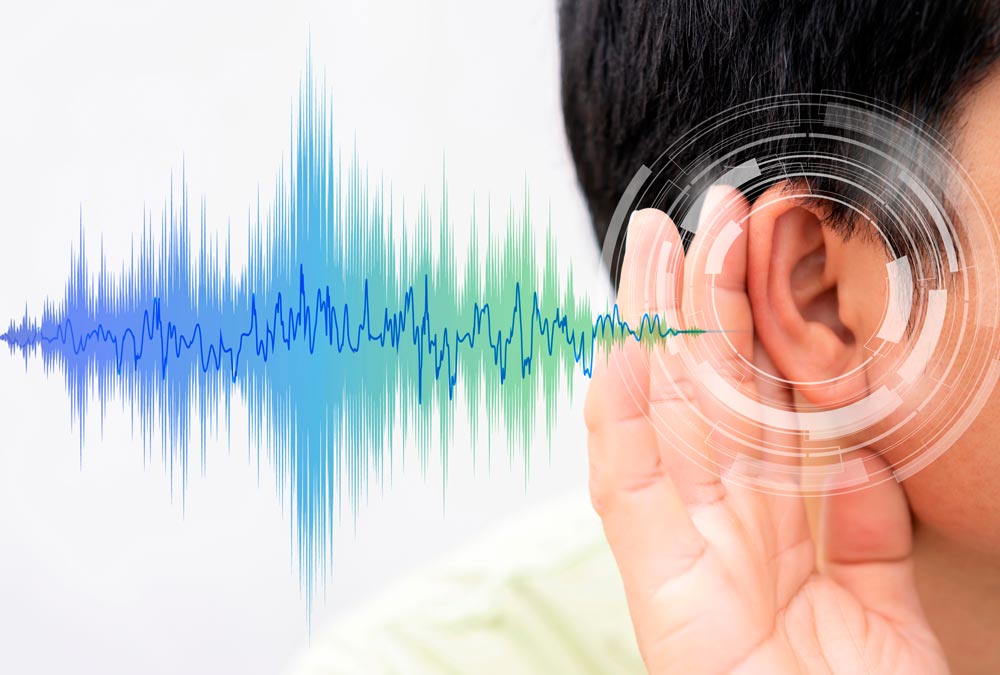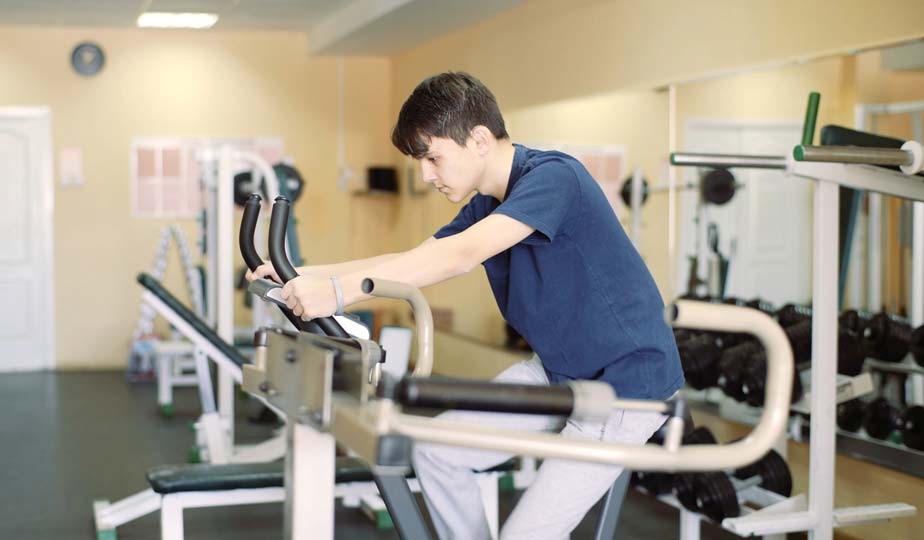Better Hearing Blog

How Is Hearing Loss Related to Depression?
When an individual experiences hearing loss, basic communication can become exhausting and effortful. As the auditory connection starts to fade due to hearing loss, it can have unexpected and far-reaching consequences on one’s emotional well-being. This may show off in the form of withdrawal from public participation to avoid the struggle of improper communication. Over time, the emotional strain can evolve into a full-blown depressive state.
The Interplay Between Hearing Loss and Depression
Research suggests a direct correlation between hearing loss and an increased risk of depression. A study recorded that approximately 35 percent of adults over 70 years experience vestibular dysfunction as a result of hearing loss. In addition, further research points out that hearing loss is often associated with withdrawal syndrome and low social engagement levels, leading to bad moods. However, using hearing aids regularly has been shown to lower the cases of depression among adults. The mounting evidence suggests a strong relationship between hearing loss and depreciation.
Does Hearing Loss Cause Depression in Some Patients?
While there is a strong association between hearing loss and depression, it’s essential to note that not everyone who experiences hearing loss will develop depression. The relationship is complex, and multiple factors contribute to the likelihood of depression occurring. Personal resilience, support systems, coping mechanisms, and the severity of the hearing loss all play pivotal roles.
Strategies for Mitigation
The good news is that the potential link between hearing loss and depression can be mitigated through various strategies. Early intervention is crucial. Seeking professional help from audiologists and mental health experts can provide individuals with the tools to adapt to their changing auditory landscape and manage emotional challenges effectively.
Hearing aids and assistive listening devices can significantly improve the quality of life for those with hearing loss. These devices can help individuals engage more actively in conversations and social interactions. Improved communication can lead to enhanced self-esteem and reduced feelings of isolation, reducing the risk of depression.
Furthermore, building a strong support network is vital. Friends, family, and support groups can offer understanding and encouragement, promoting a sense of belonging and emotional well-being. Engaging in hobbies and activities that are not solely reliant on hearing can also help individuals maintain a sense of purpose and enjoyment.
Seek Help for Hearing Loss Problem
While hearing loss does not inevitably lead to depression, the risk is heightened, making early intervention and emotional support crucial. By seeking professional assistance, you can navigate the challenges of hearing loss more effectively and maintain your emotional well-being. If you perceive a possibility of getting hearing issues, contact us for advice on the latest hearing protection methods that fit your hearing needs.

Can I Drive With Hearing Loss?
Hearing loss has a significant impact on the lives of those it affects. Hearing impairments not only interfere with communication but also balance. Hearing loss can also have an impact on how those affected by it carry out day-to-day tasks. It is not surprising that many people affected by hearing loss wonder if they will still be able to drive if they have hearing loss.
Hearing and Driving
Many senses come into play when you get behind the wheel. Your sense of sight and hearing are important for driving. Your sense of hearing will help you detect the warning horn of another driver approaching you. It will help you know to give way when an emergency vehicle is approaching. It can also help you to detect problems with the vehicle while driving.
The sense of hearing is one important part of your observational skills while driving. However, being affected by hearing loss does not mean that you can no longer drive. A recent study showed that people with hearing loss are in fact more likely to be more visually observant than those that have not been affected by hearing loss. This group of people tends to drive more cautiously because of their hearing loss. They are more likely to drive at lower speeds and use their side mirrors and other aids more to make up for their loss of hearing.
Are Deaf Drivers Considered Impaired?
There is a difference between people with significant hearing loss and people that are deaf. People with mild to severe hearing loss can in fact drive like those with normal hearing. These people can make use of hearing aids to help enhance their hearing and thus improve their driving experience.
A deaf person is unable to hear sounds. These people wouldn’t be able to hear a siren or other sounds around them. However, you can drive if you are deaf. In fact, a study showed that deaf drivers are not at higher risk of being involved in an accident than those that can hear.
If you suffer from hearing loss and are concerned about driving, there are several things you can do to improve safety while driving:
- Get your vision checked as you will be relying more on your sight than on your hearing while driving
- Reduce distractions while driving e.g. keep your mobile phone out of sight
- Visit an audiologist to have your hearing checked and to determine whether you are a good candidate for hearing aids and other technology to improve your hearing.

What Is the Difference Between a Cochlear Implant and Hearing Aid?
When a person develops hearing loss, it can impact the quality of their life significantly. While hearing loss cannot be reversed, there are various solutions that can help improve hearing and therefore improve the person’s quality of life. Many people rely on hearing aids and cochlear implants to improve their hearing.
The difference between cochlear implants and hearing aids
Hearing aids are designed to amplify sounds from the environment. These devices transmit the amplified sounds at a level that the ear can detect. They are small devices that are fitted in or behind the ear and are most suitable for children as well as adults that are suffering from mild to moderate hearing loss. These devices come in a wider range of styles to suit different preferences.
Cochlear implants are more complex than hearing aids. These are placed surgically into the air. They work by bypassing the damaged part of the inner ear to stimulate the auditory nerve directly. They are ideal for those with profound deafness or severe hearing loss. While they do not restore hearing to what it was before, they allow the wearer to experience a sensation of sound. They can therefore communicate with others and be more aware of what is happening around them.
Which is Better?
There is none that is better or worse than the other. Both hearing aids and cochlear implants are beneficial for those with hearing issues. However, they are designed to meet different needs. Hearing aids are useful for those with mild to moderate hearing loss. They can benefit those with conductive hearing loss (i.e. hearing loss that stems from the middle or outer ear) as well as those with sensorineural hearing loss (i.e. hearing loss that stems from the inner ear or the auditory nerve). Cochlear implants are beneficial for those with severe hearing loss that is sensorineural.
If you’re wondering what type of hearing device to go for, you should see your ENT or an expert audiologist. They will examine your hearing and diagnose its cause and the extent of the damage. They will then determine the best treatment for your condition.

Can Diet Affect Hearing Loss?
Many of us understand the relationship between good nutrition and good health. We now know that many health issues are the result of poor nutrition. However, not many people know that their nutrition and their hearing are actually connected.
It is important to note that hearing issues cannot be reversed with a healthy diet. If you have developed a hearing problem, you should see an audiologist to determine the best approach to take to manage your condition. However, eating a healthy nutrient-dense diet is thought to help reduce the risk of developing hearing issues while consuming a poor diet is thought to increase the risk of developing hearing issues.
The link between a healthy diet and hearing
A study involving 71,000 female participants between 1991 and 2013 showed a link between diet and hearing. The study revealed that women that consumed a diet high in vegetables, grains, and fruits were 30 percent less likely to experience hearing loss compared to those that didn’t.
Are There Specific Foods that Can Help to Prevent Hearing Loss?
There are several other studies that have linked specific nutrients to positive effects on hearing. While these nutrients cannot reverse hearing loss they are associated with a reduction in the risk of developing hearing loss. These nutrients include:
- Potassium – This mineral has been found to play a vital role in the function of the inner ear. It plays an important role in converting sounds into signals that the brain can interpret. Potassium is abundant in bananas, black beans, and potatoes.
- Zinc – This mineral is thought to be effective in treating tinnitus. It is rich in dark chocolate, cashews, and almonds.
- Magnesium – It is believed to combat free radicals that are emitted when exposed to loud noises. Magnesium, therefore, acts as a protective barrier to the hair cells in the inner ear.
- Folic acid – this mineral is thought to play a role in slowing down the onset of hearing loss. It helps to metabolize homocysteine, an amino acid that restricts blood flow. This action by folic acid helps to regulate the flow of blood. Foods high in folic acid include leafy greens such as asparagus, spinach, and broccoli.

Am I At a Higher Risk of Falls and Injury With Hearing Loss?
If you have experienced hearing loss then you may be at higher risk of suffering accidental injuries. A study in which more than 272,000 adults in the US were surveyed between 2007 and 2015 showed that people with hearing problems were 60 percent more likely to suffer accidental injuries. The study further showed that those with moderate hearing difficulties were 70 percent more prone to accident injuries.
Why Are You At Higher Risk of Falling With Hearing Loss and Not Loss of Sight
Many people think that loss of sight puts you at higher risk of accidental injuries. However, the truth is that you are more prone to falls when you have suffered hearing loss. Here’s why:
1. Hearing uses a lot of your brain reserves
Unlike when you see an object, you have to concentrate more to interpret a sound. According to Johns Hopkins School of Medicine otologist, Frank Lin, MD, PhD, this requires more mental resources. With impaired hearing, you may have fewer mental resources available to help you with your balance.
2. Hearing makes you more aware of your environment
Because of the sounds around you, you are better able to notice other activities going on around you. This gives you a better sense of where you are. Your balance is the result of the coordination of your sense of hearing and sight as well as the coordination of your muscles.
3. Hearing loss results in a decrease in spatial awareness
Hearing loss is linked to the decline of the receptors in the inner ear and plays a major role in your sense of grounding. The vestibular sense is not only activated by sound but also by gravity. It, therefore, helps to give you a sense of where in terms of space. Those with hearing loss resulting from vestibular issues experience dizziness and other balance issues.
If you are suffering from hearing loss, it is important to be careful when moving. Engage in balance exercises, walking as well as strength exercises to improve your balance.

Exercise and Hearing?
A recent study by John Hopkins University revealed that there is a relationship between hearing loss and exercise. According to the study, regular exercise can prevent hearing loss. The study revealed that seniors that were active for around 3 hours a week were less likely to develop hearing loss. Seniors that didn’t exercise at all were shown to have higher rates of hearing loss. According to the study, the activity of about 25 minutes daily can significantly reduce the risk of developing hearing loss.
Can Exercise have a negative effect on hearing?
While exercise has been shown to reduce the risk of hearing loss, some exercises can do the opposite and exacerbate hearing loss. Conditions such as perilymphatic fistula and patulous Eustachian tube can be made worse as a result of strenuous activities.
It is also important to note that hearing loss can result in balance problems. This can make engaging in certain exercises unsafe. Hearing loss has also been associated with interference in walking ability as well as reduced strength.
What Exercises Should You Do to Help Protect Your Hearing?
Hearing loss can occur as a result of inflammation damaging the nerve cells, hair cells in the ear, and the capillaries in the ear. Exercise helps to protect the ears and reduce the risk of developing hearing loss by improving the oxygen supply to the cells and nerves in the ear. It also helps to improve circulation and thus the delivery of nutrients to these cells.
You don’t have to engage in strenuous exercises to protect your hearing. Simple exercises such as walking your dog, gardening, swimming, or even playing with your children or grandchildren will help to protect your hearing. If you’re able to, high-intensity interval training (HIIT) can help to improve your overall health. It is, however, important to consult with your doctor before starting any exercise regimen.

